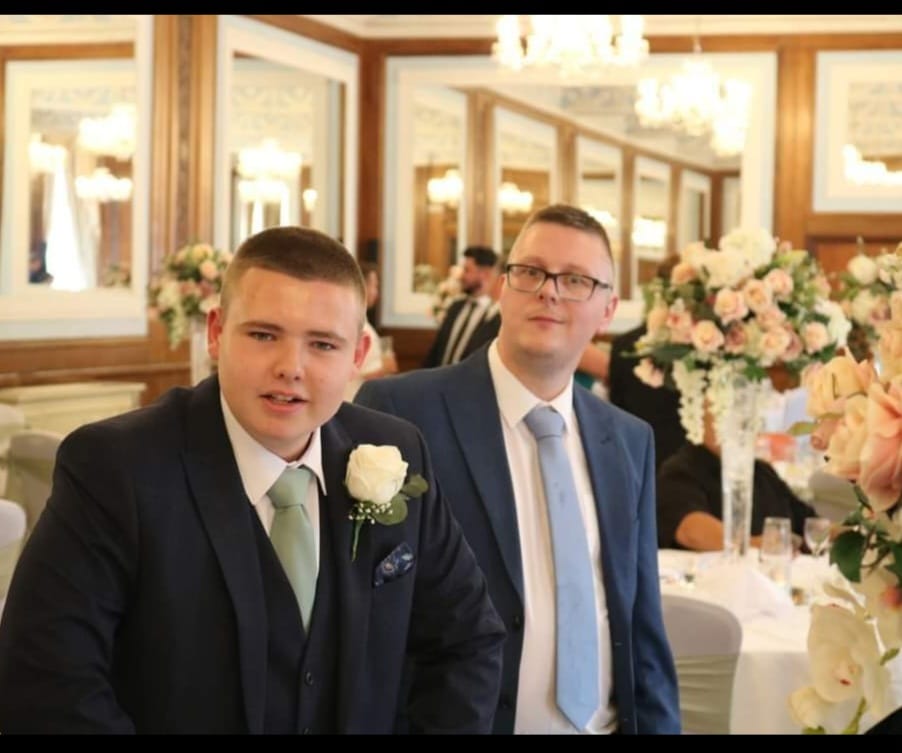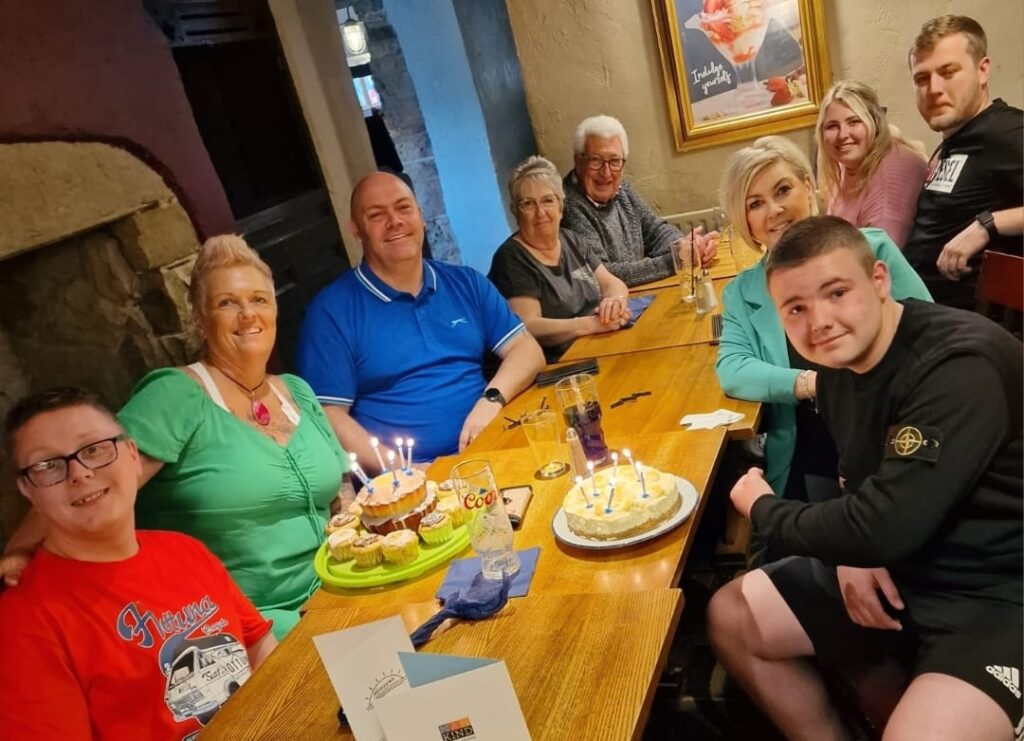If you’re an unpaid carer, you know how it feels to give your all to support a loved one. It’s not easy. You might have stepped away from a full-time job to be there for a family member – whether it’s a child, an elderly parent or someone else. The days are busy, and it can feel like your own needs often come last. Financial worries, guilt, and exhaustion might even feel like part of the routine. But what if there was a way to get paid for doing what you already do – without giving up on the care you provide for your family?
That’s exactly what Paula did when she became a Shared Lives carer. Here’s her story – and why you might want to think about joining Shared Lives too.
Still supporting family - now supporting others
Paula left her full-time job as a housing officer to be an unpaid carer for her son, who has ADHD and autism. After a couple of years, her son was ready to go back into education and she found herself wanting to do something more – something that gave her a new sense of purpose but without stepping away from her role as a carer for her son. She needed something that could work around their life. That’s when she discovered Shared Lives and it felt like the perfect fit.
Shared Lives gave Paula a flexible way to use her caring skills while still being there for her family. She and her husband now care for both her son and two adults they support through Shared Lives, making sure her family responsibilities stay her top priority.
‘The flexibility of the role is amazing because it shows that you can still focus on the family. As a Shared Lives carer we’re just extending the family, you’re not leaving anybody out, it’s just adding – and it just gives you such a lovely purpose in life.’
A new addition to the family
After a couple of years experience as a Shared Lives carer, someone she supports now came into their life quickly. A young man, under a safeguarding order, was placed with her family with just a few hours’ notice. What was supposed to be a temporary arrangement turned into a three-year journey.
Phil had experienced emotional and physical abuse and had very little self-confidence. He was underweight and had zero independence. Paula and her family took him on holiday, where they taught him how to swim and introduced him to new experiences. Over time, his independence has come on leaps and bounds.
‘He’s gone from having no self-confidence to volunteering three days a week. He can now cook for himself, do his own laundry, and doesn’t need to ask for help with the basics. Seeing him smile and gain that independence has been so rewarding.’

Unpaid carer? You can do this too
It didn’t matter that Paula didn’t have any professional caring experience. What did have was years of hands-on experience as an unpaid carer for her own family. She’s proof that the skills unpaid carers build by simply doing something out of love for their families is more than enough.
‘You don’t need to have a professional care background to be a good Shared Lives carer. If you’ve got a nurturing nature and are just somebody with a really big heart then you’ll be a good Shared Lives carer. I’m so passionate about my job. It gives me a purpose and in turn it gives them a better quality of life.’

It might feel daunting at first, but Paula says that the support and training from Shared Lives make all the difference. The assessment process, including the panel interviews, wasn’t as intimidating as she thought, and she found it really helpful to have ongoing training so that they quality of her support stays in tip top shape.
The benefits of becoming a Shared Lives carer
For Paula, being a Shared Lives carer has been life-changing – not just for the people she supports, but for her entire family. Her husband even left his career as a paramedic to join her in supporting full-time. Together, they now support two adults in their home, all while making sure Paula’s son has the care and attention he needs.
‘My son, who has ADHD and autism, has built friendships with the people we support. They’re like siblings now. It’s been the making of our family.’
Why you should consider Shared Lives
If you’re an unpaid carer who’s been feeling burnt out, missing a sense of purpose, or looking for a way to balance supporting your loved ones with something new, becoming a Shared Lives carer could be just what you’re looking for.
It’s a way to use the skills you’ve built up, continue being there for your family, and support others who need a bit of extra support to live their most independent life – all while being paid for your time and effort.
Paula’s advice for anyone considering the role?
‘Go for it. You never, ever know until you try it and if you’re worried about extending your family, don’t be. You’re not losing anything, It’s really, really rewarding and it’s been wonderful for our family’
Shared Lives is more than a job – it’s a lifestyle that brings together care, family, and community. If you’re ready to take the next step and see how becoming a Shared Lives carer could change your life, reach out today. You’ve already got the skills to do it and with our support and training, we’ll help you to become the best Shared Lives carer you can be.